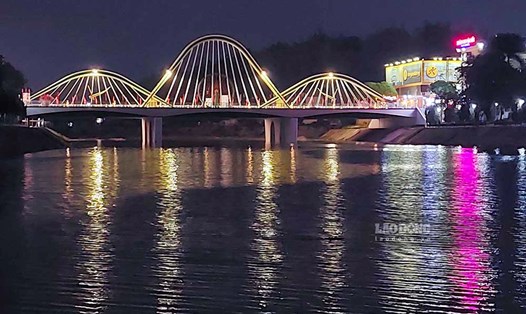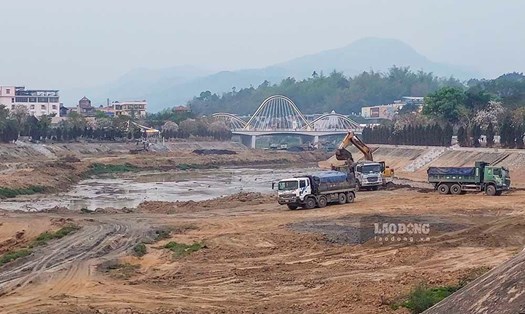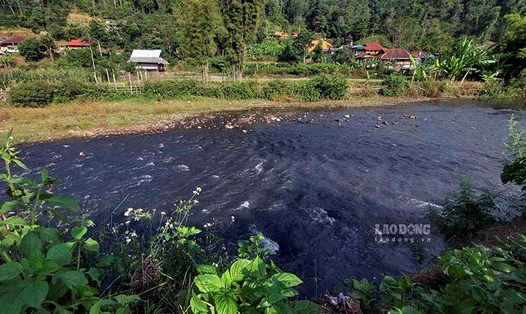The Nam Rom irrigation system is considered the “lifeblood” of the Dien Bien basin (Dien Bien Phu city and part of Dien Bien district). This project is responsible for providing irrigation water for the entire Muong Thanh field - the largest rice granary in the Northwest region.
However, currently, the canals (left canal, right canal) of the Nam Rom irrigation project have a lot of household waste. This situation has been recurring for many years, causing frustration for people living along both sides of the canal.
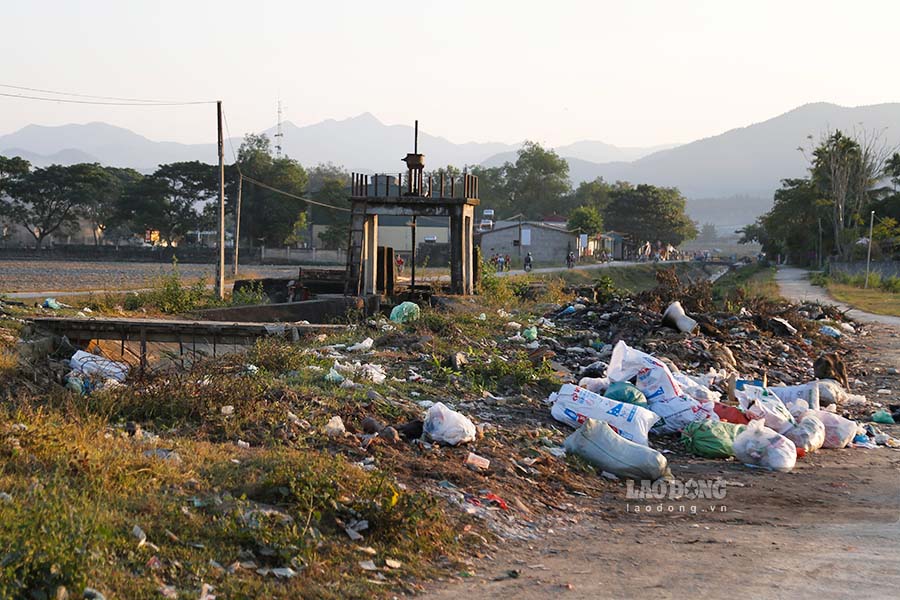
According to the reporter of Lao Dong Newspaper, in many sections of the canal passing through Dien Bien Phu City and some communes of Dien Bien District, after the water was drained, many types of household waste appeared in the canal bed.
In Thanh Chan commune, Dien Bien district, garbage accumulates at the bottom of the canal and gives off a strong stench, greatly affecting production activities and the lives of local people.
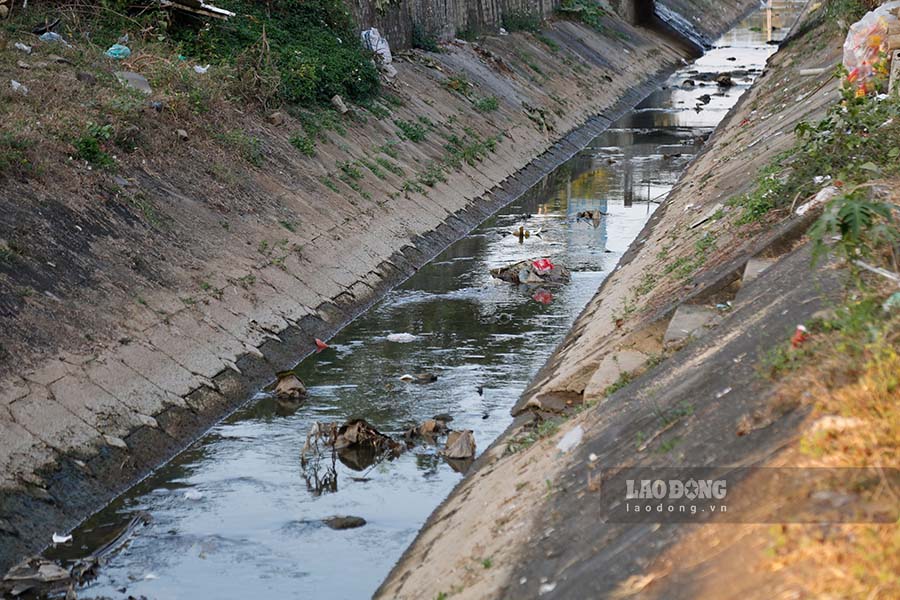
For many years, people in the area near the garbage collection point in Thanh Hong village, Thanh Chan commune, Dien Bien district have been extremely upset about the situation of littering everywhere, spreading all over the road, especially being thrown into canals. From solid waste, household waste to even dead animals, giving off a foul smell...
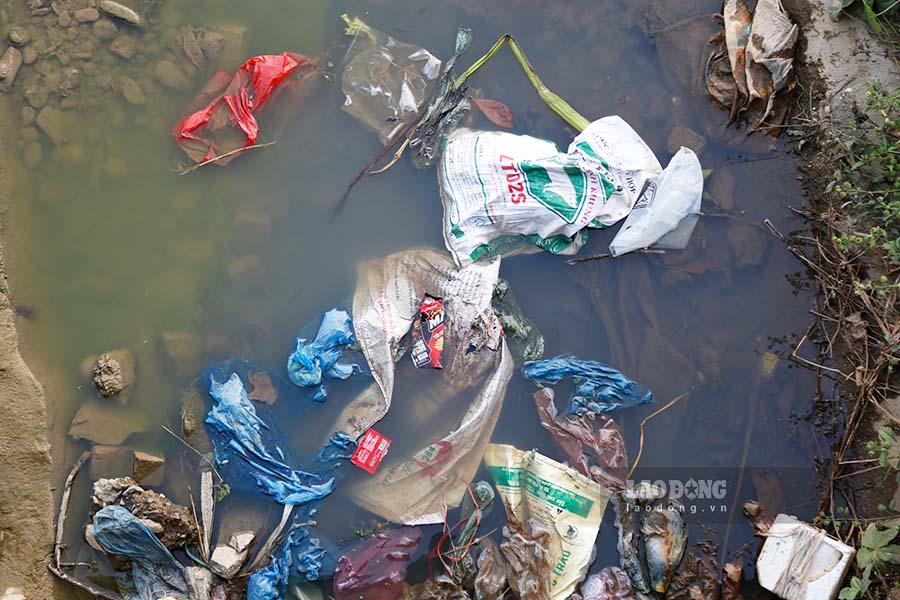
Currently, both left and right canals, more than 30km long, surrounding Muong Thanh field, are littered with garbage thrown by people, causing pollution and creating extremely offensive images.
In addition to its main task of providing irrigation water for more than 7,000 hectares of double-crop rice and winter crops, the Nam Rom irrigation project also provides water for more than 100 hectares of pond surface for aquaculture and more than 300 hectares of specialized vegetable cultivation for people in the basin.
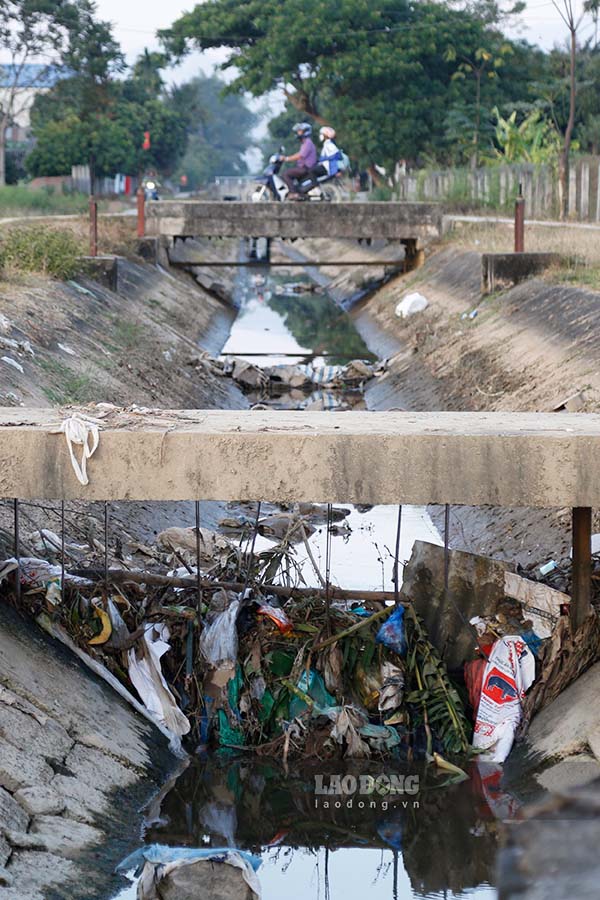
Faced with the current situation, speaking with Lao Dong Newspaper reporters, Mr. Vu Xuan Vien - Deputy Director of Dien Bien Irrigation Management Company Limited (the unit assigned to manage this project) said: "We have been trying to coordinate with authorities at all levels to propagate to change people's awareness. However, handling is very difficult because the project is spread across many communes."
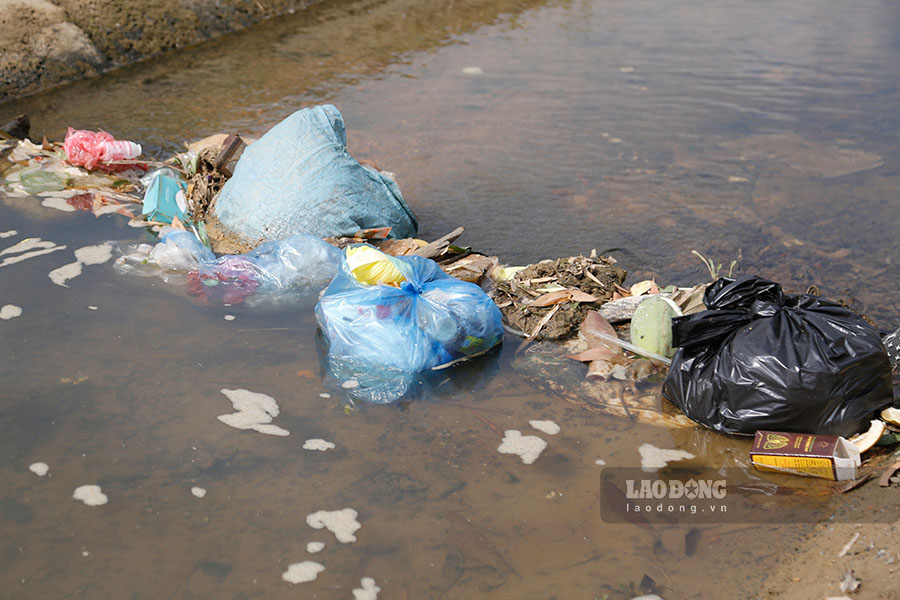
According to Mr. Vien, when discovering people throwing garbage into the canal, the company's workers can only report it to the local authorities because the company does not have the function of handling or imposing penalties. Therefore, it is currently very difficult to protect water resources.
“In the section on penalties for protecting irrigation works, penalties are only imposed for cases of trespassing on works, encroaching on corridors or destroying works… Therefore, when direct management workers go to inspect and see people throwing garbage into the canal, they must pick it up themselves,” Mr. Vien added.







